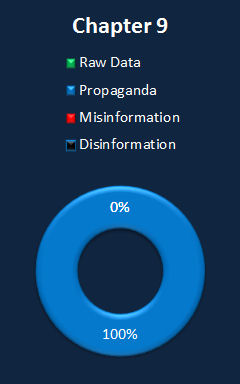
FAIR is a non-profit organization dedicated to providing well-documented answers to criticisms of the doctrine, practice, and history of The Church of Jesus Christ of Latter-day Saints.
| Claims made in "Chapter 8: Temple Builder" | A FAIR Analysis of: No Man Knows My History: The Life of Joseph Smith, a work by author: Fawn Brodie
|
Claims made in "Chapter 10: The Army of the Lord" |
| Claim Evaluation |
| No Man Knows My History |

|
Jump to details:
It was easy for Joseph to revise his revelation on the United Order since most copies of the Book of Commandments had been burned.Author's sources:
- Author's opinion
Wrote Elder Marlin K. Jensen in 2009:
One of Joseph Smith’s tasks in reviewing the manuscripts prior to their publication was to “correct those errors or mistakes which he may discover by the Holy Spirit.” Joseph knew from experience that the human process of writing down revelations, copying them into manuscript books, and then passing them through various hands in preparation for publication inevitably introduced unintentional errors. Sometimes changes were required to clarify wording. Occasionally, later revelations would supersede or update previously received revelations, necessitating the editing of documents to alter previous versions. Various other changes were also made from time to time. Most of these, such as dividing the text into verses or clarifying meaning, did not involve substantive corrections.
Joseph seemed to regard the manuscript revelations as his best efforts to capture the voice of the Lord condescending to communicate in what Joseph called the “crooked, broken, scattered, and imperfect language” of men." The revealed preface to the published revelations also seems to express this principle: “I am God and have spoken it; these commandments are of me, and were given unto my servants in their weakness, after the manner of their language” (D&C 1꞉24).
Joseph and his associates were appointed by the actions of Church conferences to prepare the revelations for publication by correcting the texts. Recent analysis of both manuscript revelation books reveals how and when many of the changes were made. For example, some changes were made before selected items were published in Missouri, while others were made in Ohio before the 1835 publication of the Doctrine and Covenants.
One common example involves changes made by Sidney Rigdon. He often changed the language in the revelations from the biblical “thee,” “thy,” and “thine” to the modern “you,” “your,” and “yours.” Many of these changes were later reversed. He also corrected grammar and changed some of the language to clarify and modify words and meaning.
In a few cases, more substantive changes were made as revelations were updated for the 1835 Doctrine and Covenants. For example, section 20 was originally received in 1830, before much of the leadership structure of the Church as we know it today was revealed to Joseph Smith. By 1835 Joseph had organized many offices and quorums by revelation. To include this newly revealed ecclesiastical order, several text changes and additions were incorporated into section 20. Our current verses 65–67 on ordaining men to priesthood offices, for instance, had been revealed after the 1833 publication and were subsequently added to the 1835 publication.
Joseph Smith reviewed many of his associates’ editorial changes and made slight alterations in his own hand before A Book of Commandments was published in 1833. He made additional changes, including adding surnames to individuals mentioned in the revelations, just before the Doctrine and Covenants was published in 1835.
Sometime around 1834–35 in Kirtland, Ohio, Revelation Book 2 was used for the preparation of the 1835 Doctrine and Covenants, and all but eight items in the manuscript book were published in that 1835 volume. In contrast, just three of the revelations copied into the book were published in A Book of Commandments in 1833. Two of the manuscript book’s revelations were first published in the 1844 Doctrine and Covenants.
Subsequent editing changes through the 1981 edition of the Doctrine and Covenants involved occasional word changes, but the major substantive changes occurred under the Prophet Joseph’s guidance for the 1835 edition.[1]
Joseph wanted to "destroy the notion" that the United Order had been similar to communism.Author's sources:
- No sources provided.
Some have asserted that the United Order was simply a form of "communism." Marion G. Romney notes that, "The 'Communist Manifesto' drafted by Karl Marx and Friedrich Engels for the Communist League in 1848 is generally regarded as the starting point of modern socialism."[2] However, Joseph Smith's implementation of the United Order predated Marx and Engels, so it would be impossible for him to have drawn upon their ideas.
Similarities between communism and the United Order:
Differences between the United Order and Marxist Communism include:
Elder Marion G. Romney summarized this as: "Socialism takes: United Order gives. That is the spirit of socialism: We're going to take. The spirit of the United Order is: We're going to give." [2]
Elder Marion G. Romney notes,
One time the Prophet Joseph Smith asked a question by the brethren about the inventories they were taking. His answer was to the effect, "You don't need to be concerned about the inventories. Unless a man is willing to consecrate everything he has, he doesn't come into the United Order." (Documentary History of the Church, Vol. 7, pp. 412-13.) [2]
Notes

FAIR is a non-profit organization dedicated to providing well-documented answers to criticisms of the doctrine, practice, and history of The Church of Jesus Christ of Latter-day Saints.
We are a volunteer organization. We invite you to give back.
Donate Now